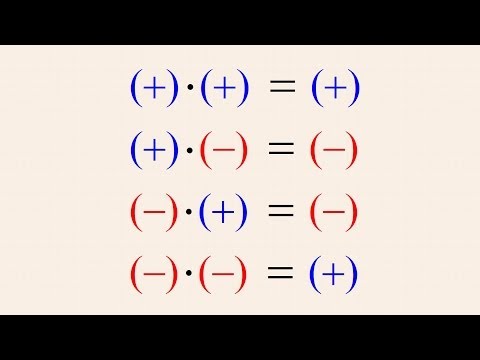The pressing problem of being “positive” is hovering all over the world like a storm mounting from South China Sea, sweeping across Philippine Islands to wreck havoc on the House of Congress. And now, strong and mammoth, it is moving westward to the Pacific, finally finding its landfall on the Whitehouse.
In time of pandemic crisis, it’s either “negative” or “positive”. These opposing words buzz about everyone’s mind on a daily basis, even by the hour. On social media or in the real world — among the close-knit families and small packets of people– hearing either of these opposing words always arouses unsettling anxiety.
It is only this season that being negative would give an once of relief. If positive, however, it would frighten us so chilling to the spine that it would hound us with a fear of death. It is specially so in the Philippines having more than 300,000 tested positive as of the first week of October, the highest number of cases in Asia and still counting.
However, this disturbing duality is also present in other scenarios, tailing behind the notoriety of coronavirus. In some political situations in our country today, what appeared to be positive would sometime come out to be negative later, or vice versa. Thus, it often confuses us that we tend to crave for clarity. A need to put in context every relevant event is compelling so as to yield to a clear understanding of what are unfolding before us.
Time and again, like an eagle’s eye, we need to maintain a sharp gaze on every significant event so as to distinguish a minus from a plus. And determine from its essence whether it is a curse or a blessing. In life, sometimes, we accidentally mistake our right hand for the left and so in following signposts. Maybe because a choice of turning to the left or right will all depend where the center is. Either negative or positive depends where the neutral is.
Come with me to backtrack to the past where our leaders once embraced so negative a stance, now slowly leaning upward into a positive position. In some other occasions, what has been positively affirmed as an agreement is slowly swinging to a downward slope, blurring into negativity. And more in other situations where the interchange of places in the upward-downward trajectory has become commonly perplexing.
Before it was South China Sea; Now it is West Philippine Sea
Read with me president Duterte’s address before the United Nation General Assembly on September 23, 2020 over the Hague ruling. He said “the award is now part of international law, beyond compromise and beyond the reach of passing governments to dilute, diminish, or abandon it.” “We firmly reject attempts to undermine it”, he added.
It came as a surprise departure from his previous approach of negating to enforce Hague ruling against China. Except for a hyperbole that he would ride a jet ski to Spratlys Islands and plant Philippine Flag, the president chose to set aside the ruling and instead engaged into bilateral talks with China to give way to improving economic ties with it.
Positive though it may sound that draws praises even from critics, Duterte’s shift of tone may have some negatively ruffling consequences with China. It may mean jettisoning tons of honey off the ships sailing to our shores through the rough waters of South China Sea. But with US, it may mean changing diplomatic landscape as China bears the brunt of diplomatic tensions with other countries over the issues of trade war, territorial conflicts and pandemic crisis response. Philippines seems to fall in love again with an old friend while we still have to wait and see if falling out with China will unfurl.
By the way, what happened to China’s pledges or loan packages to the Philippines for our bold ‘Build, Build, Build’ infrastructural rollout? Are we expecting delays or accepting denial? Unless we know the real score, we will find it difficult to understand the turnaround on Hague ruling much less to put it in context.
Is it the “Pope” or the “Lord” for housekeeping job in congress?
In the offing is the brewing tension over speakership between Speaker Alan Peter Cayetano and Representative Lord Allan Velasco. What seemed to be falling into place with a positive nod from two parties on term-sharing agreement now seems to be falling apart with negative mood filling in the air.
Who will leave or occupy the podium depends on confluence of factors. Of course, President’s conciliatory role occupies a big part in the equation. Meanwhile, the shakedown may settle down if the incumbent speaker would honor the deal and go down (In fairness, the speaker responded positively by tendering his resignation on the plenary but was negated by congressmen). Or if the contender would agree for a quarter-long extension (I don’t think so because on social media, he had his own version of the term-sharing.) If neither works, it will be measured by how each camp would consolidate powers from different partisan and interest blocs in the house.
However, can we step back and look broadly at the perspective? Lest, we may forget that speakership is given to him who is chosen freely by and among the members of House of Congress. And not by a term-sharing agreement, not sanctioned by existing law much less by the Constitution. Lest, we may forget that under the principle of separation of powers, choosing a speaker is an independent prerogative of the House of Congress. And not by any interference from other co-equal branch of the government.
Housekeeping is not a birthright reserved for the “Pope” or the “Lord”. It behooves the hands of the free-minded and reasonable men and women of the duly elected representatives of the people.
Trump tested positive despite negative attacks
While still railing with an interchangeably confusing connotation, I heard the news that President Trump tested positive for coronavirus. Known for using positive words in his public utterances like ‘smart’, ‘amazing’, ‘tremendous’, to name a few, Trump has to fight the unseen enemy by keeping his air of positivity, ironically hoping for negativity.
The irony of being positive for Trump turned to be doubly negative with his weakening popularity over alleged mismanagement of pandemic crisis response. Not to count poll survey showing Trump rearing Biden’s score, it is even more aggravated by his negative performance in recent presidential debates. As many as the interruptions were during the debate, so will be the days of interruptions on his campaign sorties towards election day.
But who knows being positive of the virus might offer a twist if it appeals to the sympathetic votes of the American electorate, turning a negative perception into a solidly positive electoral support. But Joe Biden’s camp is quick enough to forestall the antidote by taking down all negative ads against Donald Trump.
Sometimes, it is hard to find out what it brings to us—negative or positive. It is even harder if it is a bane or a boon. But the hardest is how to identify the difference.


